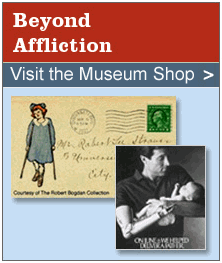Library Collections: Document: Item Description
Excerpt from: Relation Of Commission To Other Agencies Perhaps nowhere in the country is the reluctance to become a "pauper" stronger than in New England. This, of course, has its beneficial effects in restraining persons who might otherwise endeavor to impose upon charitable agencies, but there can be no question that it works a hardship upon certain persons, some of whom are without sight, who are compelled to sell their respect in this connection in order to obtain the necessities of life. It is the half-conscious conviction of the public of the injustice of this situation which made the authors of the Mothers' Aid Law declare the recipients not to be "paupers," while at the same time prohibiting such mothers from obtaining settlement in any town while receiving this public aid. This is why we have "pensions for the blind" instead of "blind relief."... | Read Full Text |
Document Information
| Title: | Relation Of Commission To Other Agencies | |
| From: | Reports Of The Ten-Year Survey Committee On The Work Of The Massachusetts Commission For The Blind, 1906-1916 | |
| Creator: | Robert Irwin (author) | |
| Date: | 1916 | |
| Format: | Article | |
| Publisher: | Massachusetts Association for Promoting the Interests of the Blind, Boston | |
| Source: | Mount Holyoke College Library | |
| Control no.: | IZB2, Cutter Collection | |
| Location: | pp.31-42 | |
| Keywords: | Aging; Almshouses; Blind; Boston, MA; Children; Economics; Education; Employment; Government; Government Agencies; Hospitals; Institutions; Labor; Labor & Commerce; Legislation; Leisure; Massachusetts; Massachusetts Commission For The Blind; Medicine; Opthamalia Neonatorum; Pension; Perkins School For The Blind; Policy; Poverty; Prevention; Public Health & Welfare; Robert Irwin; Schools; Sensory Disability; Sheltered Workshop; Social Welfare; Social Welfare & Communities; Social Welfare & Employment; Vocational Rehabilitation; Work | |
| Topics: |





